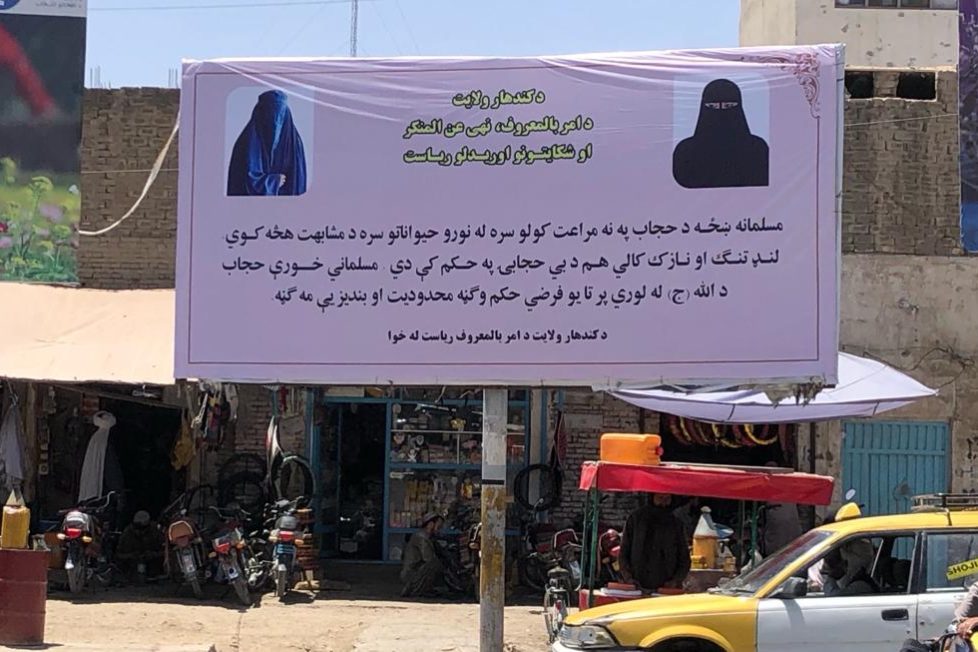‘Women without hijabs look like animals,’ Taliban declared on posters across Kandahar


Taliban’s religious police had posted posters in the southern Afghan city of Kandahar saying that Muslim women who do not wear an Islamic headscarf that totally covers their bodies are “trying to look like animals.”
Since taking over Afghanistan in August last year, the Taliban have put tight restrictions on Afghan women, reversing the achievements made in the two decades since the US invaded Afghanistan and toppled the Taliban’s previous rule.
Hibatullah Akhundzada, the country’s supreme leader and Taliban chief, signed a proclamation in May stating that women should normally stay at home. If they had to go out in public, they were told to cover themselves entirely, including their faces.
The Taliban’s feared Ministry for the Promotion of Virtue and Prevention of Vice, which enforces the group’s rigid interpretation of Islam, put up posters depicting burqas, a form of garment that covers a woman’s whole body from head to toe, across Kandahar city this week.
The posters, which have been slapped on several cafés and stores as well as advertising hoardings around Kandahar — the Taliban’s de facto power centre — say that Muslim women who do not wear the hijab are attempting to look like animals.
According to the posters, wearing short, tight, and revealing clothing was also against Akhundzada’s rule. The ministry’s spokesman in Kabul, the capital, could not be reached for comment, but a top local official confirmed the posters’ placement.
“We have put up these posters, and those ladies whose faces are not covered (in public) will be informed, and we will take steps in accordance with the regulation,” Abdul Rahman Tayebi, the Kandahar ministry’s head, told AFP.
Male relatives of women who do not comply are warned and sometimes fired from government jobs, according to Akhundzada’s rule.
The burqa, which was made required for women during the Taliban’s first term in office, is widely worn outside of Kabul. Michelle Bachelet, the UN’s human rights director, criticised the hardline Islamist government’s “institutionalised systemic abuse” of women on Wednesday.
“It’s a life or death issue for them,” she stated.
The Taliban promised a gentler version of their previous severe governance system, which was in place from 1996 to 2001 when they retook power. Women, on the other hand, have been subjected to a slew of restrictions since August.
Thousands of girls have been prevented from attending secondary schools, and many women have been barred from returning to government employment.
Women are also prohibited from travelling alone and are only permitted to attend public parks in the capital on days when men are prohibited from doing so.
DISCLAIMER: The author is solely responsible for the views expressed in this article. The author carries the responsibility for citing and/or licensing of images utilized within the text.

